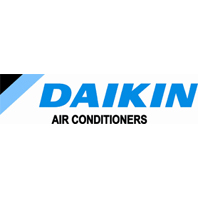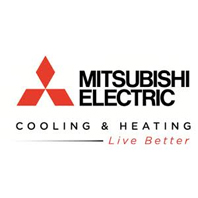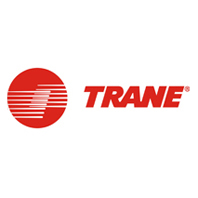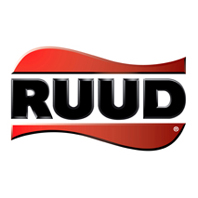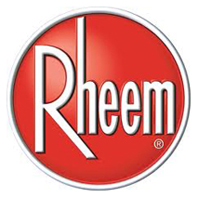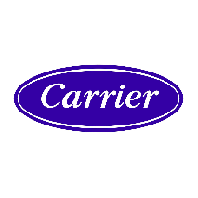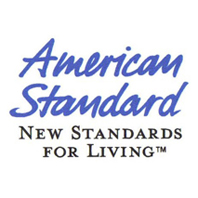What is HVAC? The term HVAC stands for heating, ventilation and air conditioning. An HVAC system consists of the components required for the heating, cooling and ventilation of the air in your home. These components include the furnace or fan coil (typically in your attic or a closet), the condenser (on the outside of your home), and the ducting which circulates the heated or cooled air. So when you ask the question, “What is HVAC,” the answer is essentially the combination of multiple subsystems working together to heat or cool your home. Other components that might be considered when asking “what is hvac” include those that improve the quality of the air being circulated—indoor air quality—or humidification products.
Below we provide answers to other commonly asked questions related to the HVAC system installed in your home. If you have another question not on this list or want to ask a Beach AC the “what is hvac” question, feel free to call a Beach AC in your area. Or, call us directly at (305) 672-4100
FAQ
-
What Can I Do to Improve the Air Quality in My Home?
What is indoor air quality? It’s the quality of the air your breathe in your home. Dust, pollens, pet dander, mold – many things can contribute to indoor air quality problems. Your Beach AC can discuss the benefits of whole house air cleaners, humidifiers and dehumidifiers, UV lights, upgraded filters and more. You might also be interested in comfort-improving options such as multiple zones and wireless thermostats.
-
Should I Consider Duct Repair?
According to Consumer Reports, 20-40% of the heat generated by a furnace dissipates through the duct system before reaching your rooms. This can be caused by low R-value of the insulation in the existing duct work, or by improperly sealed duct systems. Ask your contractor to look at your duct work and see if it needs to be sealed, repaired or replaced. When replacing the duct work ask your contractor about installing R-6 or R-8 insulation for greater system efficiency.
-
Why Is It Important to Change My Filter Regularly?
When a filter is clogged the equipment has to work harder to get the same amount of air through the system. This can lead to premature system failure and higher energy bills, as well as poor air quality inside. So regularly changing the filter on a heating and air conditioning system not only provides the home with cleaner air, but also saves the homeowner money.
-
What Are the Benefits of Having a Service Agreement?
Service agreements help extend the life span of a heating and air conditioning system by ensuring it runs at maximum efficiency. Details differ among contractors, but generally have some important similarities. The contractor typically will prepare your air conditioner before summer by tuning up the system, cleaning the condenser outside and cleaning the coil inside. Before winter starts the contractor will typically prepare your heater by cleaning and tuning it up. This normally includes changing out air filters. Properly maintaining your system can have a significant impact on your utility bills and the life of your system. Ask your Beach AC for details about a service agreement.
-
The Air Conditioner I Have Is Loud. Can We Do Something About That?
Just as furnaces and air conditioners have become much more efficient and environmentally friendly, they’ve also gotten quieter. Your contractor will be able to supply sound ratings so you can compare. Chances are, your new central air system will be quieter than your old one. And if you’re not yet ready to replace, options such as insulating sound blankets may help alleviate a noise problem on existing equipment.
-
I Already Have Several Quotes; Why Are the Prices So Different for the Same House?
The same house can contain very different central air systems. You’ll want to look at the details and see exactly what’s included in each proposal – options such as zoning, accessories such as whole house air cleaners or upgrades such as hi-def thermostats will change the price. Services such as duct sealing may be included by one contractor but not another. And the price of a heater or air conditioner will change by the efficiency rating. A better quality installation will generally have a higher initial price, but pay off over time.
-
A Bigger Air Conditioner Will Be Better, Right?
Maybe not. A furnace and air conditioner that are too big for your home can create problems such as excessive humidity. And heating or cooling your home too quickly causes the units to run off and on too often, leading to excessive wear and a shortened system life span. Your contractor should always measure your home and recommend a system sized to fit, taking into account windows, shade, local climate and how you use your rooms.
-
Can I Have the R22 in My Current System Replaced With R410A?
No. Unfortunately, the refrigerant in an R22 system cannot be replaced with R410a refrigerant. Components and oils that interact with R22 are incompatible with R410a.
-
What Is R410A Refrigerant?
In an air conditioning system, refrigerant is what allows heat from inside to be moved outside, causing your house to be cooled. R22 refrigerant has been used for many years and is found in most residential systems operating in the United States. It’s currently being phased out – equipment using R22 cannot be manufactured after January 1, 2010. R410a is a new, more environmentally friendly refrigerant. It does not contain chlorine, which depletes the ozone layer.
-
How Is Efficiency Measured for Furnaces?
Furnace efficiency is shown as a percentage of energy converted into heat in the home. If you have an 80% furnace, out of every dollar of gas used to heat the home, 80 cents worth of heat is going into the home and 20 cents of heat is lost out of the exhaust. So the higher the percentage efficiency the furnace has, the more usable heat will be produced.
-
What Is HSPF?
HSPF stands for Heating Seasonal Performance Factor, and measures the heating efficiency of a heat pump. It’s a ratio of heat produced over a season to the amount of electricity used. As with SEER and EER, a higher number indicates greater efficiency. Because heat pump units heat and cool, they’ll have both SEER and HSPF ratings.
-
What Do SEER & EER Mean?
SEER stands for Seasonal Energy Efficiency Ratio, and measures how well an air conditioning system is able to cool over an entire season. EER stands for Energy Efficiency Ratio, and measures how well an air conditioning system operates at a specific temperature (typically 95 degrees Fahrenheit) – it’s a measure of how much energy a system uses compared to how much cool air it produces. So what is a SEER rating and an EER rating? The higher the SEER & EER rating on your system the less energy your system will use to make you comfortable.
-
Why Does a Contractor Need to Visit My Home, Instead of Quoting Me over the Phone?
Every home and every family have unique needs, and a contractor won’t be able to determine what yours are without an in-home consultation. For example, your home’s square footage will be measured, existing air flow checked, rooms inspected to ensure the correct number and placement of registers and grilles, and site examined to determine the best placement of your new equipment. The contractor will take into account features such as volume ceilings and large, sun-facing windows. You’ll also be asked about your own family’s preferences – if you have allergies, living zones, energy and environmental concerns, or are interested in high-tech upgrades, your contractor will include them in your proposal.
-
Should I Replace or Repair My Unit?
This decision depends on many factors. If your system is relatively new and the repair is minor it will probably make sense to repair the equipment; if you have an older system it may make sense to replace it. Systems today are much more efficient than they were years ago, so the upfront cost of replacing a unit may be offset by long-term energy savings. A new unit will also carry a new warranty, adding to the value of your system.
-
How Long Should Installation Take?
Installation times vary depending on how much work needs to be done, but a typical installation involving a complete system change out will take 1-3 full days.

